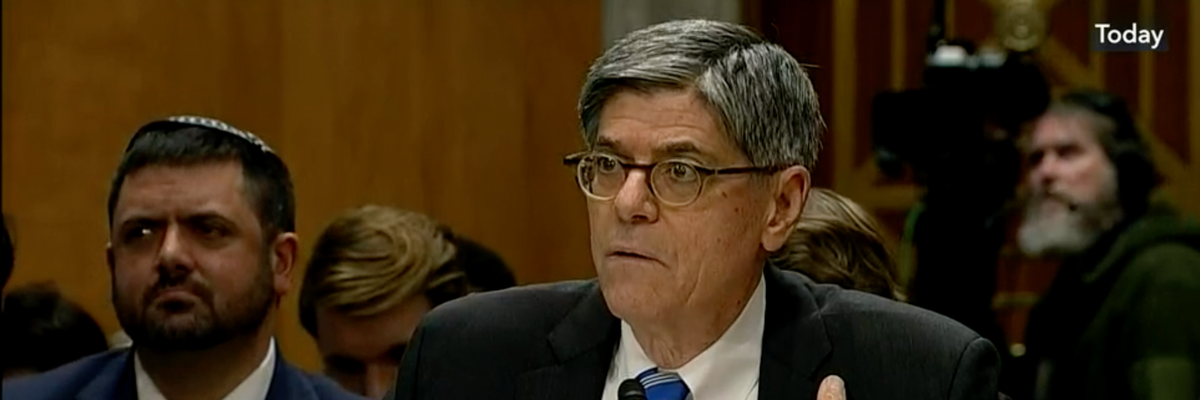During a hearing to be the next U.S. ambassador to Israel, Biden nominee Jacob Lew was sure to affirm Washington's support for Israel as it responds to Hamas’s attacks by shelling Gaza with missiles and preparing for a possible ground invasion.
But the former secretary of the Treasury spent just as much — if not more — time sparring with Republican members over his role in the implementation of the Obama-era nuclear deal with Iran during his hearing on Wednesday.
There has been no permanent ambassador to Israel since Tom Nides left the post in July. It's been a month since Lew was nominated, but the events of the last 10 days pushed the Senate to act quickly to fill the role.
There were a number of questions about the current war in yesterday's Senate Foreign Relations Committee hearing, with Lew emphasizing Israel’s right to defend itself. He also stressed the importance of following the laws of war, but acknowledged the impossibility of avoiding civilian deaths in the kind of campaign that Israel is waging, pointing to past U.S. efforts to combat ISIS as evidence.
GOP members of the committee, however, were much more interested in Lew’s previous role in the Obama administration for which they accused him of facilitating Iran’s entrance into the U.S. financial markets, and ultimately resourcing Hamas.
In the words of Sen. James Risch (R-Idaho), the ranking member on the committee, “this whole thing is about Iran.”
Sen. Marco Rubio,(R-Fla.) accused Lew of "misleading" Senators while he was at the Treasury and for relaxing sanctions on Iran, a charge Lew vehemently denied.
Sen. Ted Cruz (R-Texas) called Lew a "critical piece" of the Obama administration's "campaign of appeasement" toward Iran.
After hearing Republican after Republican zero on this issue, Sen. Ben Cardin (D-Md.), the newly-named chairman of the committee, retorted that he had been very lenient in allowing members to pursue a line of questioning focused on sanctions and the nuclear issue, issues which Lew would not be directly responsible for if confirmed to his new role.
“I would just like to point out that we do have a nominee for the office of sanctions coordinator,” Cardin said. “And I hope that we can get a hearing on that nominee because I think that would be the appropriate place to talk about sanctions enforcement and previous policies concerning sanctions enforcement.”
When it came to policy towards Israel, Lew hewed very closely to the Biden administration’s line, often invoking the president’s exact words in the days since the latest war in Gaza broke out. “The president said as recently as this morning, without the state of Israel, it's not just the people of Israel who aren’t safe,” Lew said when asked why the U.S.-Israel relationship was special. “Jews around the world aren’t safe.”
The hearing was also marked by a series of interruptions early in the proceedings, with three protesters calling for a “ceasefire now,” and for Washington to stop sending aid that they said was allowing for the “genocide of Palestinians.”
A few Democrats raised concerns about the humanitarian conditions in Gaza. Lew said that it was important to “minimize” the “collateral damage” of Israel’s war, but that now was not the time to “lecture” Tel Aviv on “what they have to do to establish the security that they have a responsibility to provide.”
The White House has urged the Senate to move Lew’s nomination out of committee and to a full Senate vote quickly, though some Republicans are reportedly mulling putting a hold on his confirmation.
















